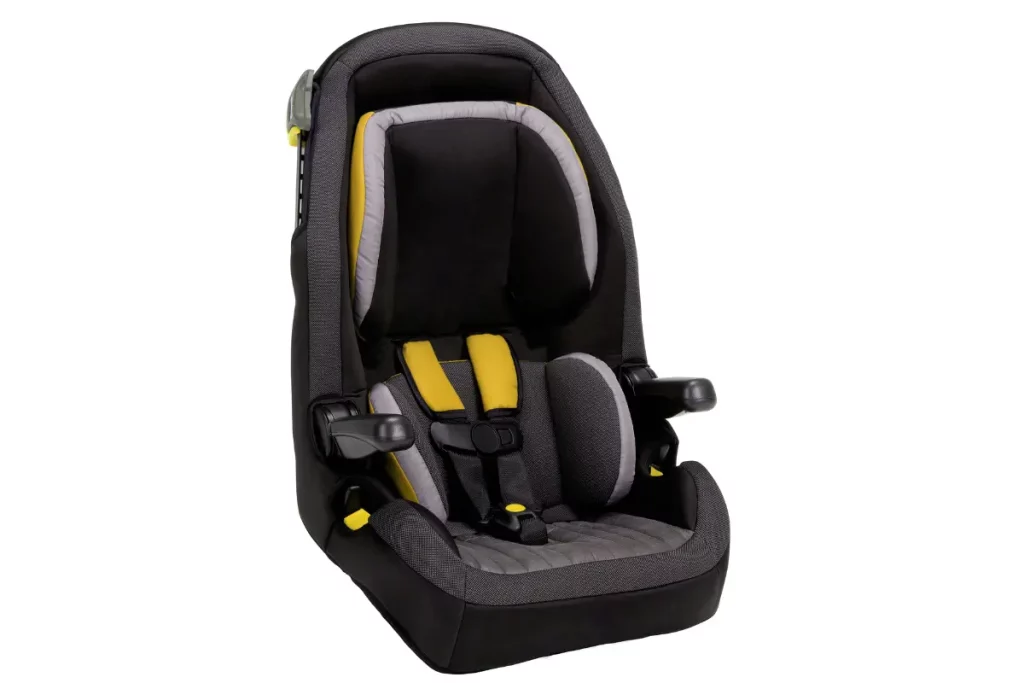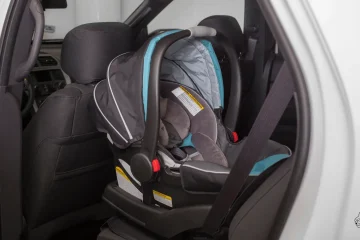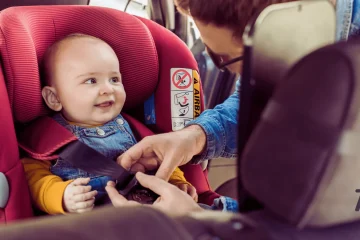This article is from the Automotivean website and discusses about Car Booster Seat Laws in NC.
Car booster seat laws are a crucial aspect of ensuring the safety of young passengers while on the road. In North Carolina, these laws play a significant role in protecting children in the event of an accident. Adhering to these regulations is a legal requirement and a moral responsibility that can save lives. This article delves into the specific guidelines set forth by North Carolina for booster seat usage. And also provides valuable insights for parents and caregivers.
North Carolina Car Booster Seat Laws
North Carolina has established clear guidelines regarding child passenger safety laws. Its for ensure that children adequately protected while traveling in vehicles. Understanding these laws is essential for every parent or caregiver. In North Carolina, children required to use a booster seat until they reach a certain age and weight.
Specifically, children under the age of 8 and weighing less than 80 pounds. And also required to ride in an appropriate child restraint system, which includes booster seats. Booster seats designed to elevate children to the correct height so that the vehicle’s seat belt fits them properly. This is crucial for preventing injuries in the event of a collision.
Compliance and Regulations- Car Booster Seat Laws
Compliance with car seat laws in North Carolina is important for the safety of children and is also a legal requirement. Failure to adhere to these regulations can result in fines and penalties. Parents and caregivers need to familiarize themselves with the state’s specific regulations related to booster seats.
North Carolina’s child restraint system rules require children under the age of 8 and weighing less than 80 pounds. It’s for to be secured in an appropriate child restraint system while traveling in a motor vehicle. Booster seats must meet specific safety standards and used correctly to ensure optimal protection for children.
Practical Application- Car Booster Seat Laws
To ensure compliance with North Carolina’s booster seat laws, parents and caregivers can follow these practical tips:
- Regularly check that the booster seat installed correctly and secured in the vehicle.
- Ensure that the child strapped in correctly and that the vehicle’s seat belt fits them snugly over the shoulder and hips.
- Follow the manufacturer’s guidelines for the booster seat’s appropriate age, weight, and height requirements.
- Educate other caregivers and family members about the importance of using booster seats and following the state’s regulations.
Common incomprehension about car seat laws in North Carolina. It includes the belief that once a child reaches a certain age, they no longer need to use a booster seat. However, it is crucial to attach to the state’s guidelines based on both age and weight to ensure the child’s safety.
Last word about Car Booster Seat Laws NC
Following car booster seat laws in North Carolina is imperative for the safety and well-being of children while traveling. By understanding the guidelines and complying with the state’s regulations. Parents and caregivers can help reduce the risk of injuries in the event of a collision. It is essential to prioritize the safety of young passengers on the road by using booster seats. That meets safety standards and ensures that children correctly secured. By highlighting the importance of following car booster seat laws. We can create a safer environment for all passengers on North Carolina’s roads.
Frequently Asked Questions (FAQ): Understanding Car Booster Seat Laws in North Carolina and South Carolina
What is the age and weight for a booster seat in NC?
In North Carolina, the booster seat usage guidelines are based on age and weight. Children under the age of 8 and weighing less than 80 pounds must use a booster seat when traveling in a vehicle. This mandate ensures that children are properly secured and protected in the event of a collision. Booster seats designed to elevate children to the correct height so that the vehicle’s seat belt fits them snugly over the shoulder and hips. It is crucial to follow these guidelines to ensure the safety of young passengers while on the road in North Carolina.
Can a 10-year-old sit in the front seat in North Carolina?
In North Carolina, no specific law prohibits a 10-year-old from sitting in the front seat of a vehicle. However, it is essential to consider the child’s safety when determining seating arrangements. The back seats generally considered the safest place for children to ride, as it offers better protection in the event of a crash. If a 10-year-old is seated in the front seat, it is important to ensure that a seat belt properly restrains them and that the airbag is deactivated if they are in a seating position where airbag deployment may pose a risk.
What are the seat belt laws in NC?
North Carolina has strict seat belt laws to ensure all vehicle occupants’ safety. In North Carolina, all drivers and passengers in the front seat of a vehicle are required to wear a seat belt at all times. Additionally, all passengers under the age of 16 must properlyrestrained regardless of their seating position in the vehicle. Failure to comply with seat belt laws can result in fines and penalties. It is crucial for both drivers and passengers to buckle up for their safety and to adhere to North Carolina’s regulations concerning seat belt usage.
When can a child sit in the front seat in SC?
In South Carolina, no specific laws govern the age at which a child can sit in the front seat of a vehicle. However, it is recommended that children under the age of 13 be seated in the back seat for their safety. The back seat offers better protection in the event of a collision and reduces the risk of injury from airbag deployment. Suppose a child seated in the front seat in South Carolina. In that case, ensuring that a seat belt properly restrains them and that the airbag is deactivated if necessary to prevent injury is important. Parents and caregivers should prioritize the safety of young passengers by following best practices for seating arrangements and restraints while traveling in vehicles in South Carolina.



